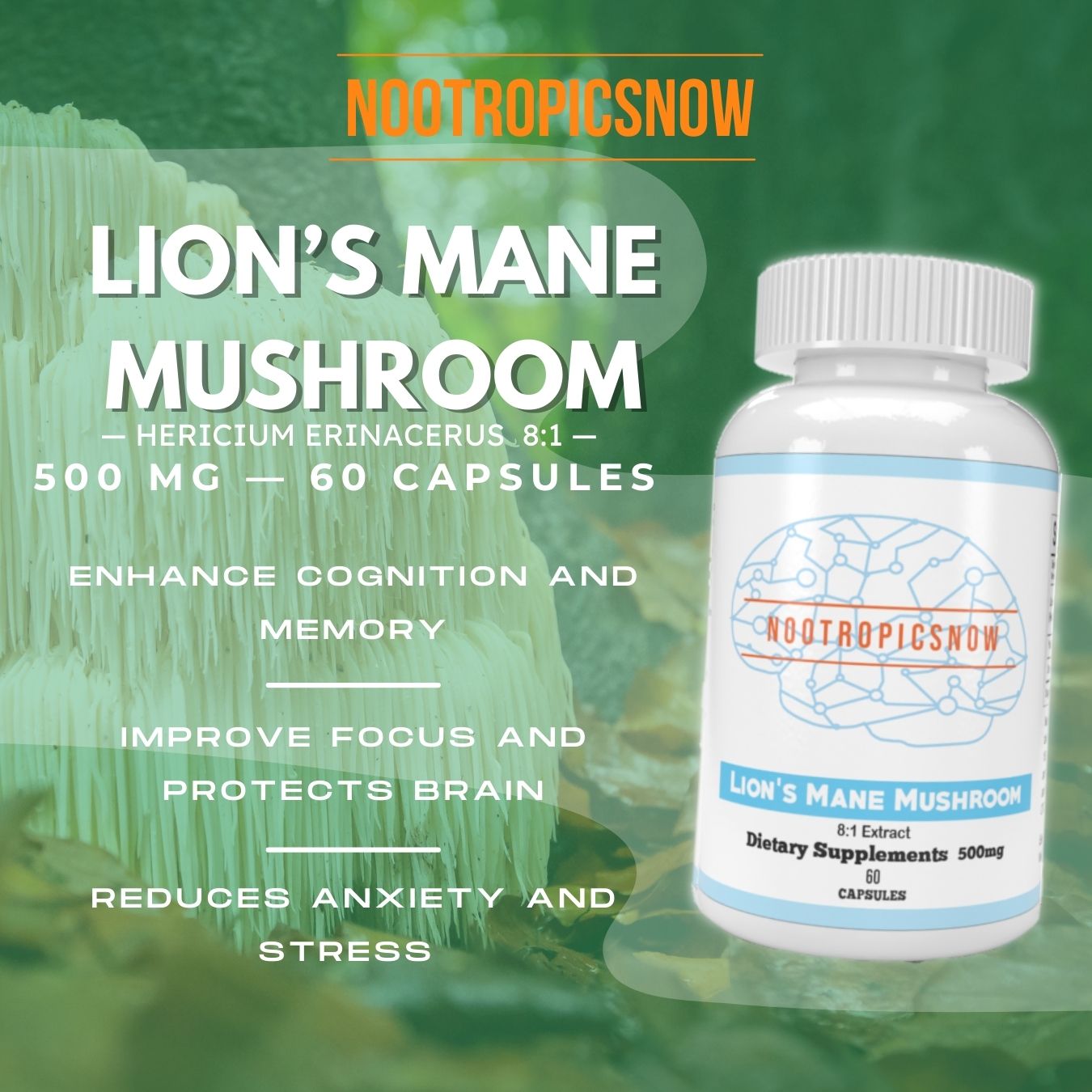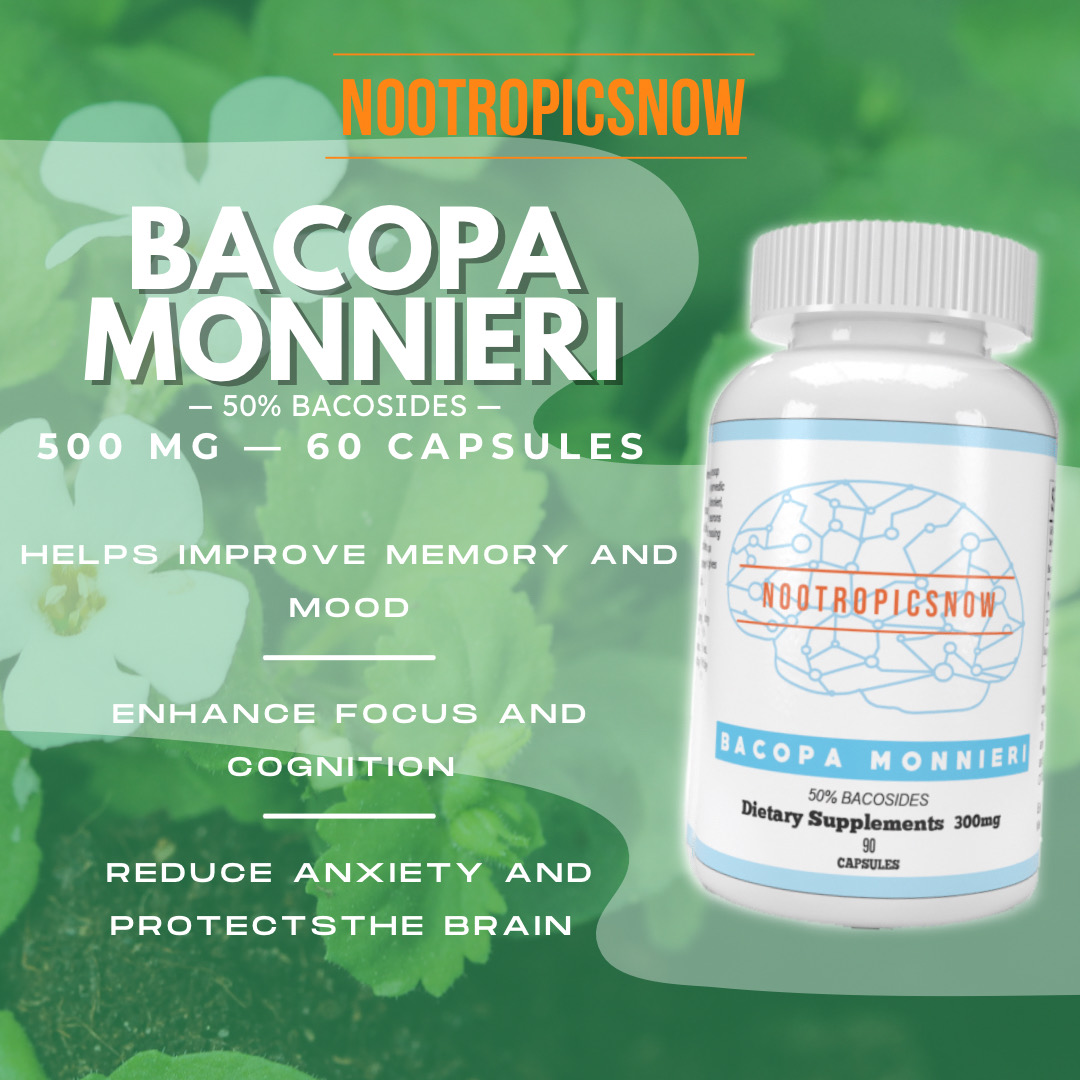Chaga: The Natural Nootropic?

Chaga for Nootropics: A Deep Dive into Cognitive Enhancement
Chaga (Inonotus obliquus) stands out among medicinal mushrooms as a potent source of nootropic benefits. For centuries, traditional medicine systems in Siberia, Asia, and Northern Europe have prized Chaga for its health-promoting properties. Now, modern research is starting to validate these historical uses, especially regarding cognitive function and mental well-being. Consequently, Chaga is gaining popularity as a natural nootropic, offering a compelling alternative or complement to synthetic cognitive enhancers.
Understanding Nootropics and Cognitive Enhancement
Nootropics, often referred to as “smart drugs” or cognitive enhancers, are substances that can improve cognitive functions, notably memory, focus, creativity, motivation, and executive functions. They achieve these effects through various mechanisms, including boosting neurotransmitter levels, enhancing cerebral blood flow, and providing neuroprotective benefits. While synthetic nootropics like Modafinil and Piracetam receive considerable attention, natural nootropics such as Chaga offer a gentler, potentially safer approach to cognitive enhancement.
The Nutritional Powerhouse: Chaga’s Key Compounds
Chaga derives its potent health benefits from a complex array of bioactive compounds. These compounds work synergistically to promote cognitive function and overall well-being. Therefore, understanding these components is crucial to appreciating Chaga’s nootropic potential.
Polysaccharides: Beta-glucans are a type of polysaccharide abundant in Chaga. They exhibit immunomodulatory effects, enhancing the body’s defense mechanisms. Furthermore, they are involved in regulating blood sugar levels, which can indirectly support cognitive function by ensuring a steady energy supply to the brain.
Triterpenes: Chaga contains various triterpenes, including betulin and betulinic acid. These compounds boast potent antioxidant, anti-inflammatory, and antiviral properties. Importantly, research suggests that betulinic acid can cross the blood-brain barrier, potentially exerting direct neuroprotective effects.
Melanin: This pigment gives Chaga its dark, charcoal-like appearance. Melanin acts as a powerful antioxidant, scavenging free radicals and protecting cells from oxidative stress. In addition, melanin may contribute to Chaga’s adaptogenic properties, helping the body better cope with stress.
Phenols: Chaga is rich in phenolic compounds, including flavonoids and phenolic acids. These compounds contribute to its antioxidant and anti-inflammatory activities. Furthermore, some phenols may have neuroprotective effects, shielding brain cells from damage and promoting cognitive resilience.
Minerals and Vitamins: Chaga contains essential minerals and vitamins, including B vitamins, vitamin D, potassium, calcium, and zinc. These nutrients play crucial roles in brain function and overall health. For example, B vitamins are essential for neurotransmitter synthesis, while zinc is important for neuronal signaling and synaptic plasticity.
Chaga’s Multifaceted Nootropic Mechanisms
Chaga’s nootropic potential stems from a range of mechanisms that directly impact brain function and overall neurological health. Here’s a breakdown of these key actions:
Antioxidant Defense: Chaga’s abundance of antioxidants neutralizes free radicals, mitigating oxidative stress. Oxidative stress, a major contributor to aging and neurodegenerative diseases, can impair cognitive function by damaging brain cells. Therefore, Chaga’s antioxidant properties are crucial for maintaining cognitive health and preventing age-related cognitive decline.
Inflammation Reduction: Chronic inflammation can wreak havoc on brain function. Chaga’s anti-inflammatory compounds, particularly triterpenes and phenols, help to reduce neuroinflammation, protecting neurons from damage and supporting optimal cognitive performance. This is because chronic inflammation is a major contributor to cognitive decline.
Neuroprotection: Several studies indicate that Chaga extracts possess neuroprotective properties. For instance, they can protect neurons from damage caused by toxins, such as glutamate, and enhance the survival of brain cells under stress. These protective effects contribute to long-term cognitive health and resilience.
Brain-Derived Neurotrophic Factor (BDNF) Enhancement: BDNF is a protein that plays a vital role in neuronal growth, survival, and synaptic plasticity. Some research suggests that Chaga may increase BDNF levels in the brain, promoting neurogenesis (the formation of new brain cells) and enhancing cognitive functions like learning and memory. Increased BDNF levels are associated with improved cognitive performance.
Adaptogenic Effects: Chaga acts as an adaptogen, helping the body better manage stress. Chronic stress can impair cognitive function by disrupting neurotransmitter balance and damaging brain cells. Consequently, Chaga’s adaptogenic properties can improve cognitive resilience and protect against the negative impacts of stress on the brain.
Improved Cerebral Circulation: Studies suggest that Chaga can improve blood flow to the brain, ensuring that brain cells receive adequate oxygen and nutrients. This enhanced cerebral circulation is crucial for optimal cognitive function, as it supports energy production and neurotransmitter synthesis.
Cognitive Benefits: What Research Reveals
Although research on Chaga’s nootropic effects is still emerging, existing studies suggest promising cognitive benefits:
Memory Enhancement: In animal studies, Chaga extracts have shown potential to improve memory and learning. For example, one study found that Chaga supplementation enhanced spatial memory and reduced memory impairment in mice. However, more research is needed to confirm these effects in humans.
Focus and Attention: Some users report that Chaga supplementation improves focus, concentration, and mental clarity. While scientific evidence directly supporting these claims is limited, Chaga’s antioxidant, anti-inflammatory, and adaptogenic properties may contribute to these subjective experiences.
Mood Enhancement: Chaga’s ability to reduce stress and inflammation may also improve mood and reduce anxiety. This, in turn, can indirectly benefit cognitive function, as mood and emotional state significantly impact cognitive performance.
Neurodegenerative Disease Prevention: Given its neuroprotective properties, Chaga may hold potential for preventing or slowing the progression of neurodegenerative diseases like Alzheimer’s disease and Parkinson’s disease. However, further research is needed to explore these potential benefits.
Integrating Chaga into Your Nootropic Routine
Chaga is available in various forms, including powders, capsules, teas, and extracts. When incorporating Chaga into your nootropic routine, consider the following:
Dosage: Optimal dosage varies depending on the individual and the form of Chaga used. Start with a low dose (e.g., 500mg of Chaga powder or extract per day) and gradually increase it as needed. Follow product-specific dosage recommendations.
Form: Choose a high-quality Chaga product from a reputable source. Look for products that have been tested for purity and potency.

View Product
Timing: You can take Chaga at any time of day. Some people prefer to take it in the morning for sustained energy and focus, while others find it beneficial before bed to promote relaxation and improve sleep quality.
Stacking: Chaga can be stacked with other nootropics to enhance cognitive benefits. For example, combining Chaga with Lion’s Mane mushroom or Bacopa Monnieri may yield synergistic effects.

View Product

View Product
Safety Considerations and Potential Side Effects
Chaga is generally considered safe for most people when consumed in moderation. However, some potential side effects and precautions to consider include:
Blood Thinning: Chaga may have blood-thinning effects, so it should be used with caution by individuals taking blood thinners or who have bleeding disorders.
Hypoglycemia: Chaga may lower blood sugar levels, so individuals with diabetes should monitor their blood glucose closely when taking Chaga.
Autoimmune Diseases: Because Chaga can stimulate the immune system, it may not be suitable for individuals with autoimmune diseases.
Drug Interactions: Chaga may interact with certain medications, including antiplatelet drugs and anticoagulants.
Kidney Problems: High doses of Chaga may lead to kidney problems, particularly in individuals with pre-existing kidney conditions.
Allergies: Some individuals may be allergic to Chaga. Discontinue use if you experience any allergic reactions.
Always consult with your healthcare provider before adding Chaga to your nootropic routine, especially if you have any underlying health conditions or are taking medications.
Sourcing High-Quality Chaga
The quality of Chaga products can vary considerably. Therefore, it’s essential to source Chaga from reputable suppliers who prioritize quality, sustainability, and ethical harvesting practices.
Wild-Harvested vs. Cultivated: Chaga can be wild-harvested or cultivated. Wild-harvested Chaga is often considered more potent, as it has been exposed to a wider range of environmental stressors. However, sustainable harvesting practices are essential to ensure the long-term availability of Chaga.
Extraction Methods: The extraction method used to obtain Chaga extracts can impact the potency and bioavailability of its bioactive compounds. Look for products that use hot water or dual extraction methods.
Testing and Certification: Choose Chaga products that have been tested for purity, potency, and contaminants. Look for certifications from third-party organizations.
Origin: The origin of Chaga can influence its chemical composition. Chaga from colder climates, such as Siberia and Northern Europe, is often considered more potent.
The Future of Chaga in Nootropic Research
As research on Chaga’s nootropic potential continues to expand, we can anticipate a deeper understanding of its mechanisms of action and cognitive benefits. Future studies may focus on:
Clinical Trials: Conducting human clinical trials to assess the efficacy of Chaga for improving memory, focus, mood, and other cognitive functions.
Neuroimaging Studies: Using neuroimaging techniques, such as fMRI, to investigate how Chaga affects brain activity and connectivity.
Mechanistic Studies: Delving into the molecular mechanisms by which Chaga exerts its neuroprotective and cognitive-enhancing effects.
Combination Therapies: Exploring the potential of combining Chaga with other nootropics or lifestyle interventions to optimize cognitive performance.
These research efforts will help to solidify Chaga’s place as a valuable natural nootropic and inform its use in promoting cognitive health and well-being. As the science advances, consumers will have greater confidence in Chaga and its potential to support mental performance.
Chaga for Nootropics: A Natural Path to Cognitive Wellness
Chaga offers a promising natural approach to cognitive enhancement. With its rich array of bioactive compounds, diverse mechanisms of action, and emerging research supporting its cognitive benefits, Chaga has the potential to improve memory, focus, mood, and overall brain health. By integrating Chaga into a holistic lifestyle that includes a healthy diet, regular exercise, stress management, and adequate sleep, you can optimize your cognitive performance and unlock your full mental potential.
Chaga for Nootropics: A Deep Dive into Cognitive Enhancement
Chaga ( Inonotus obliquus ), often dubbed the “King of Mushrooms,” isn’t just a trending superfood. For centuries, traditional medicine systems in Siberia, Asia, and parts of Europe have revered Chaga for its impressive medicinal properties. More recently, researchers and biohackers are exploring its potential as a natural nootropic. Its powerful antioxidant profile and unique bioactive compounds offer promising benefits for cognitive enhancement, making it an increasingly popular choice for individuals seeking to optimize their mental performance.
Unveiling Chaga’s Cognitive Potential: A Natural Nootropic
Nootropics, also known as “smart drugs,” are substances that enhance cognitive functions like memory, focus, creativity, and motivation. While synthetic nootropics have gained considerable attention, natural alternatives like Chaga offer a gentler, potentially safer approach to cognitive enhancement. Chaga stands out due to its complex composition, which includes polysaccharides, betulinic acid, melanins, and various antioxidants. These compounds work synergistically to support brain health and cognitive performance.
The Science Behind Chaga’s Nootropic Effects
Antioxidant Powerhouse: Combating Oxidative Stress
The brain is highly susceptible to oxidative stress due to its high metabolic activity and abundant lipid content. Free radicals, unstable molecules that damage cells, contribute to cognitive decline and neurodegenerative diseases. Chaga boasts an exceptionally high Oxygen Radical Absorbance Capacity (ORAC) value, indicating its potent antioxidant activity. This powerful antioxidant capability enables Chaga to neutralize free radicals, protecting brain cells from damage and promoting healthy cognitive aging. Therefore, regular consumption may contribute to improved memory and learning by preserving neuronal integrity.

View Product
Anti-Inflammatory Action: Quieting Brain Inflammation
Chronic inflammation in the brain can disrupt neuronal signaling and impair cognitive function. This inflammation can be triggered by various factors, including diet, stress, and environmental toxins. Chaga possesses significant anti-inflammatory properties, primarily attributed to its triterpenes, such as betulin and betulinic acid. These compounds can help regulate the inflammatory response, reducing neuroinflammation and supporting optimal brain function. The reduction in inflammation can lead to improvements in focus, concentration, and overall cognitive clarity.
Neurotrophic Support: Nurturing Brain Cell Growth
Neurotrophic factors are essential for the survival, growth, and differentiation of neurons. Brain-Derived Neurotrophic Factor (BDNF) is a crucial neurotrophic factor involved in learning, memory, and synaptic plasticity. While more research is needed, some studies suggest that Chaga may stimulate the production of BDNF, potentially promoting neuronal growth and enhancing cognitive function. This makes Chaga a promising candidate for supporting long-term brain health and preventing age-related cognitive decline.

View Product

View Product
Adaptogenic Properties: Managing Stress and Enhancing Resilience
Stress can negatively impact cognitive function, impairing memory, focus, and decision-making abilities. As an adaptogen, Chaga helps the body adapt to stressors, both physical and mental. Adaptogens work by modulating the stress response, reducing cortisol levels, and promoting a sense of calm and well-being. By mitigating the negative effects of stress, Chaga can indirectly enhance cognitive performance and promote mental resilience. Users may find they are better able to concentrate and think clearly under pressure.

View Product
Blood Sugar Regulation: Stabilizing Energy for the Brain
Maintaining stable blood sugar levels is crucial for consistent cognitive function. Blood sugar spikes and crashes can lead to energy fluctuations, brain fog, and impaired focus. Chaga has been shown to help regulate blood sugar levels by improving insulin sensitivity and promoting glucose metabolism. By stabilizing blood sugar, Chaga can provide a steady supply of energy to the brain, supporting optimal cognitive performance throughout the day. Improved insulin sensitivity can also protect against insulin resistance, a risk factor for cognitive decline.
Incorporating Chaga into Your Nootropic Routine: Usage and Dosage
Chaga is available in various forms, including powders, capsules, teas, and extracts. The ideal form and dosage depend on individual preferences and tolerance.
Chaga Tea: A traditional method of consumption involves brewing Chaga chunks or powder into a tea. This method allows for slow absorption of the active compounds. For best results, simmer Chaga chunks in water for several hours, allowing the beneficial compounds to be extracted. The resulting tea can be consumed warm or cold.
Chaga Powder: Chaga powder can be added to smoothies, coffee, or other beverages. It’s important to source high-quality Chaga powder from reputable suppliers to ensure purity and potency. A typical dosage ranges from 1/2 to 1 teaspoon per day.
Chaga Capsules: Capsules offer a convenient and precise way to consume Chaga. They are ideal for individuals who prefer a standardized dosage. Follow the manufacturer’s instructions for dosage recommendations.
Chaga Extracts: Extracts are concentrated forms of Chaga, often standardized for specific bioactive compounds like polysaccharides or betulinic acid. Extracts offer a potent dose of Chaga’s beneficial constituents. Follow the manufacturer’s instructions for dosage.
It’s advisable to start with a low dose and gradually increase it as needed, monitoring your body’s response. Consistent, long-term use is generally recommended to experience the full cognitive benefits of Chaga.
Synergistic Combinations: Stacking Chaga with Other Nootropics
To further enhance the nootropic effects of Chaga, consider combining it with other natural cognitive enhancers. The following combinations have shown promising results:
Chaga and Lion’s Mane: Lion’s Mane is another medicinal mushroom known for its neurotrophic properties. Combining Chaga with Lion’s Mane can provide synergistic benefits for brain health, promoting neuronal growth, enhancing memory, and improving focus.

View Product
Chaga and Rhodiola Rosea: Rhodiola Rosea is an adaptogenic herb that helps the body cope with stress and fatigue. Combining Chaga with Rhodiola Rosea can enhance mental resilience, improve mood, and boost cognitive performance under stress.

View Product
Chaga and Bacopa Monnieri: Bacopa Monnieri is an Ayurvedic herb known for its memory-enhancing properties. Combining Chaga with Bacopa Monnieri can improve memory, learning, and cognitive clarity.

View Product
Potential Side Effects and Precautions
While Chaga is generally safe, some individuals may experience mild side effects, such as digestive upset or allergic reactions. Chaga contains oxalates, which can interfere with calcium absorption and may be problematic for individuals with kidney problems. People with autoimmune diseases should exercise caution, as Chaga may stimulate the immune system.
It’s also important to note that Chaga can interact with certain medications, such as blood thinners and immunosuppressants. Consult with your healthcare provider before using Chaga, especially if you have any underlying health conditions or are taking medications.
Sourcing High-Quality Chaga: Ensuring Purity and Potency
The quality of Chaga products can vary significantly. It’s crucial to source Chaga from reputable suppliers who prioritize quality, purity, and sustainability. Look for the following:
Wild-Harvested or Sustainably Cultivated Chaga: Wild-harvested Chaga is typically more potent, but it’s important to ensure that it’s harvested sustainably to protect the environment. Sustainably cultivated Chaga is an alternative option that reduces the pressure on wild populations.
Third-Party Testing: Choose products that have been third-party tested for purity, potency, and heavy metals. This ensures that the product contains the stated amount of active compounds and is free from contaminants.
Extraction Methods: The extraction method can affect the bioavailability of Chaga’s active compounds. Hot water extraction is a traditional method that extracts polysaccharides, while alcohol extraction can extract triterpenes. Dual extraction combines both methods to extract a wider range of beneficial compounds.
Reputable Brands: Research the brand’s reputation and read customer reviews to ensure that the product is effective and safe.
Conclusion: Embracing Chaga for Cognitive Well-being
Chaga mushrooms offer a natural and promising approach to cognitive enhancement. Its powerful antioxidant, anti-inflammatory, neurotrophic, and adaptogenic properties make it a valuable addition to any nootropic regimen. By protecting brain cells, reducing inflammation, supporting neuronal growth, and managing stress, Chaga can help improve memory, focus, concentration, and overall cognitive performance.
While Chaga is generally safe, it’s important to consult with your healthcare provider before using it, especially if you have any underlying health conditions or are taking medications. By sourcing high-quality Chaga products and using them responsibly, you can harness the cognitive benefits of this remarkable mushroom and unlock your full mental potential. Embrace the power of Chaga and embark on a journey towards enhanced cognitive well-being. Furthermore, ongoing research continues to explore the extent of Chaga’s potential benefits, solidifying its role in supporting brain health.









